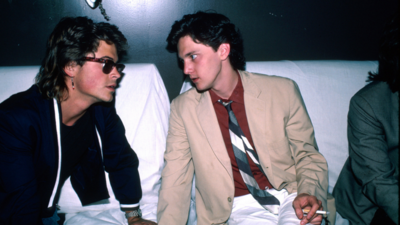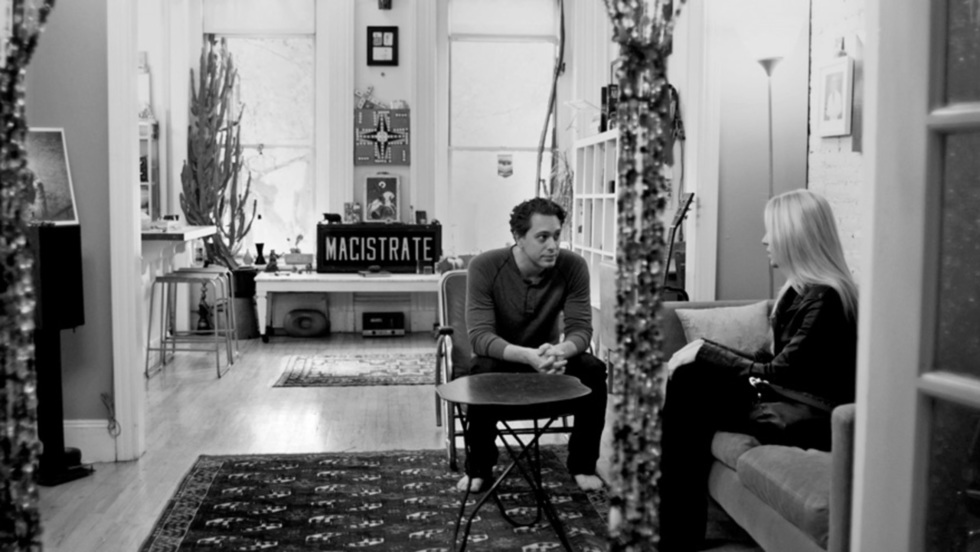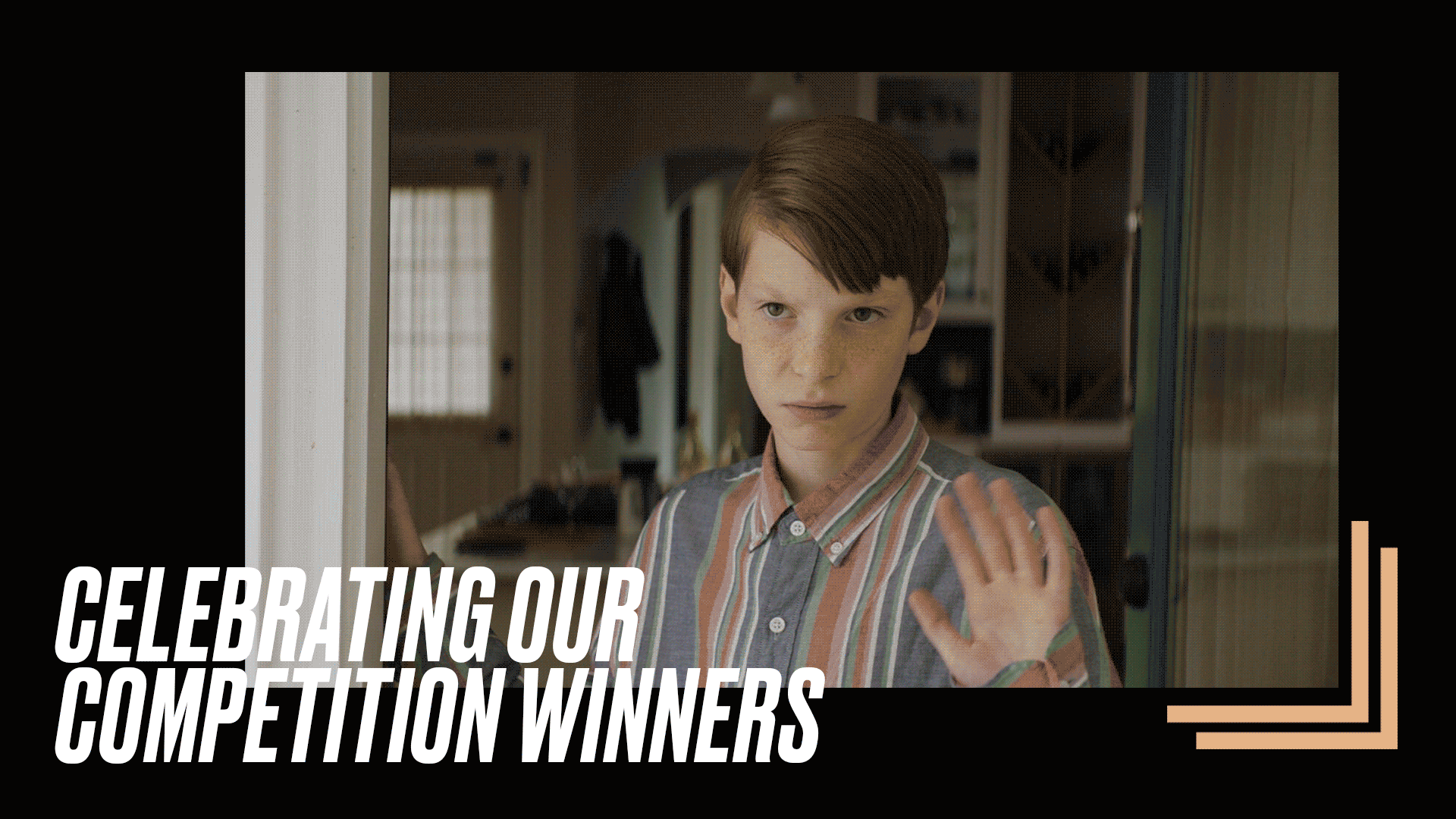
BY KRISTIN MC CRACKEN |
Our Neil LaBute Interview: This Man Can Do Anything
Versatile playwright/director Neil LaBute has two short films in TFF 2012: he wrote and directed BFF, and he penned Double or Nothing. As you can imagine, both are mordantly comic, which has become his signature.

Tribeca: You have two films in the Festival: you wrote and directed BFF and you also wrote Double or Nothing. Let’s start with BFF: how do you describe it?
Neil LaBute: BFF was a notion of taking a catchphrase like that and exploring what that means. I'm always interested in what people know and don't know about each other, and the idea of close-knit groups who are fractured in some way by discoveries or moments in their lives. So to take two people who consider themselves best friends, or BFFs, and see how well they actually know each other was the point of departure for me.
Tribeca: Are your films and your plays triggered by any personal experiences, generally, or are you pretty much living in your mind?
Neil LaBute: Yeah, I'm typically a mind-liver. I know a good story when I hear one—in a restaurant or elsewhere—but I'm not really someone who digs through the past—my own, of [that of] family and friends—looking for material. I tend to self-generate the stuff. I'm more of a what-if person.
Tribeca: So where did BFF come from?
Neil LaBute: It came from the notion of trying to write a good two-hander. I always love to hear conversations and to hear people talk, and how those things can twist and turn and go in a direction you wouldn't expect them to. So there was not really an impulse like, “Oh! This is the thing I wanted to say.” It was more, what if I put two more people in a room—I'm constantly putting people in a room or at a table—and see what happens to them.
Tribeca: This is your third short film. For the uninitiated, what do you think differentiates short films from features, aside from the length? What appeals to you about the medium?
Neil LaBute: For me, it's the freedom to do all the kinds of things... I'm someone who has come from theater, so a lot of my directing, a lot of my aesthetic, a lot of things have come from that world. And sometimes those things are not appreciated—like the monologue, the direct address, even today black-and-white isn't that accepted in motion pictures, in features anyway. Motion pictures? Wow, I really sound too old. “In the talkies.” [Laughs.]
But in shorts, because you're usually removed from the financial considerations of what will a movie do in the marketplace, you're free to experiment in a way that is much harder to do on a feature. So I love control, but in another sense freedom, to do exactly what I imagined. And that feels a lot closer to where I started.

With the first movie I did, In the Company of Men, I didn't have anyone talking to me about: Will an audience like this? Will they like these characters? Can you do this? Are there enough scenes that are outdoors? All those things that you would love to play with, you're really free to do here. You can work with form, and content. So I think it's freeing in a lot of ways, after working in much more established grooves with a studio or with somebody else's money.
Tribeca: What's the difference for you between writing for the stage and writing for the screen?
Neil LaBute: I think that there is that perception that you're going to use pictures more in film—show the story rather than tell the story. I've always kind of fought against that; I love listening to dialogue and hearing people talk, so for me there's probably less of a differentiation between [stage and film].
But in the world of short films, again, I think there's that freedom to do pretty much what you want. While this conversation in BFF could take place on stage, it works absolutely fine in the film; it doesn't need to go anywhere else. You don't need to see an outside shot of the house; you don't need to break up the conversation into 12 different locations. It's meant to be happening in that moment.
Tribeca: Do you work with actors differently when you're directing for stage versus film? In a play, things can be different every night, but in a film you're trying to get that one performance, that one moment.
Neil LaBute: Sometimes actors have difficulty in features, where they have to be able to jump around [to different parts of the script], where on stage it's a very natural process from rehearsal into a performance. It's more gradual, and there's process in the product, rather than delivering the product immediately, like you do in movies. In film whatever you shoot that first day has to be as good as, hopefully, what you shoot on day 3 or whatever. It’s nice sometimes to have people who have worked in theater and movies and can easily go back and forth between them.
As the director, when you're working on a bigger film you think, “Okay, I just have to take care of today. I just have to get these couple of minutes today, and then we'll move on to the other ones tomorrow.” You stack them together and you have a movie. But with a short you can do something in a day, in a matter of hours, and that's your entire movie.
In a case like this, it’s not like, “Oh, we can only shoot that big, fantastic scene on the first day, because we can only get into the library that day.” There often aren't those considerations, so you can shoot in continuity.

Tribeca: So was the shoot just one day? That's nice. Short and sweet.
Neil LaBute: Exactly. You don't belabor it.
Tribeca: This is your 12th film—a mix of shorts and features. Any advice for aspiring filmmakers looking to make their first film?
Neil LaBute: I think it's something they probably hear all the time: go make something. Nothing that you read or hear in a classroom or talk about or go see any number of times gives you that same rush, probably, or satisfaction, or shows you the eye-opening facts of what it is to make a movie. [Shooting material is] like telling a playwright, “Just go write some pages.” If it comes together and becomes a play, great, but you need to write even five pages to see what it's like and grind those out.
Don’t be so worried about product—look at what it is you want to do, and go out there and film something. That doesn't mean make a film; it just means film something. Figure out what it's like to shoot somebody in natural light or in a room and think about it: Why did that come out so dark?
It’s really practice, practice, practice. And there's never been a healthier time for people to go out and shoot things—on everything from their cell phones to the high-quality cameras that are becoming available to people on the street. Also, there are so many forms that people accept: I can watch this movie on the internet or on my phone or in a theater.
This is a great time to be alive and trying to make movies, because there are so many ways in which to do that. So take that first step. Some people are paralyzed by not having Citizen Kane be the first thing they make, but I think it's best to go out and start shooting.

Tribeca: Switching gears to Double or Nothing, how did you hook up with [director] Nathaniel Krause?
Neil LaBute: His sister, Louisa Krause, who's in the film, was an actor in a play of mine, in New York called In A Dark, Dark House. Her brother was making a film for school, and she asked me if I had any material that I may be able to help him with. I had something that I thought might work, if we could put some people together. I knew he had planned on using Louisa, and I knew her work, and one of the people who helped him produce, Andrew Carlberg, had done a previous short film of mine, After School Special. Andrew was very instrumental in putting it all together and getting a cast, etc. I'd worked with Keith David on Death at a Funeral, so that all came together really well. Again, it was a one-day—actually a one-night—shoot.
Tribeca: Were you involved in the actual production too?
Neil LaBute: No, actually. It was more, deliver the script and let them go to it. after I made some input and gave some suggestions, they were really on their own.
Tribeca: So what are you most looking forward to about having your films at Tribeca?
Neil LaBute: I think New York is always a place that loves movies—and loves theater. New York has that hunger for things that are new, so it's a great trial by fire with audiences who are extremely vocal about their likes and dislikes, and I always welcome that. A lot of what I've grown up in—theater and film—you know how important the audience is, and for me, I think the audience in New York is as strong as anywhere in the world. So I feel like the film's getting a great birth that way. The New York audience includes really savvy people who make movies or want to make movies, and/or both; it's not a place where people just sit back and watch. You often spark them into making their own movies. That's a great peer group to be around.
Tribeca: If you could have dinner with any filmmaker alive or dead, whom would you choose?
Neil LaBute: It probably would still be Eric Rohmer, who, sadly now tends to be one of the dead ones. I'm not willing to die have that dinner, but if it's still a living or dead thing, the simplicity of his work has always been really enchanting to me.
Tribeca: What's your favorite New York movie?
Neil LaBute: My Man Godfrey. It’s the perfect screwball comedy, and it applies as well today as it did in the ’30s. It’s charming and crazy and just a little bit dark. Nobody could make “funny” look as easy as Powell and Lombard, and that is an absolute gift.
Tribeca: What would your biopic be called? Either now or in 50 years when they're writing the story of Neil LaBute?
Neil LaBute: It Seemed Like a Good Idea at the Time.
Tribeca: We're really excited that we're going to show BFF in the Tribeca Online Film Festival too. What do you think makes BFF a Tribeca must-see?
Neil LaBute: BFF is a short from someone who's been making movies for a while... It's an excellent example of what I like and what I do: what I like in movies as a viewer, and what I do as a filmmaker. It’s my own sort of valentine to the process itself—to that independent spirit of wanting to tell stories no matter what size or to what audience. I have a love for the medium itself, and I think what I do as a writer and a director is encapsulated really perfectly in just a few minutes.
Watch BFF in the Tribeca Online Film Festival, beginning April 18 at 10 am.

Neil LaBute is the acclaimed playwright of The Shape of Things, Fat Pig, Some Girls, and the Tony-nominated Reasons To Be Pretty. He debuted his first film, In the Company of Men, at Sundance in 1997 and has also directed Your Friends and Neighbors, Nurse Betty, and Lakeview Terrace.

